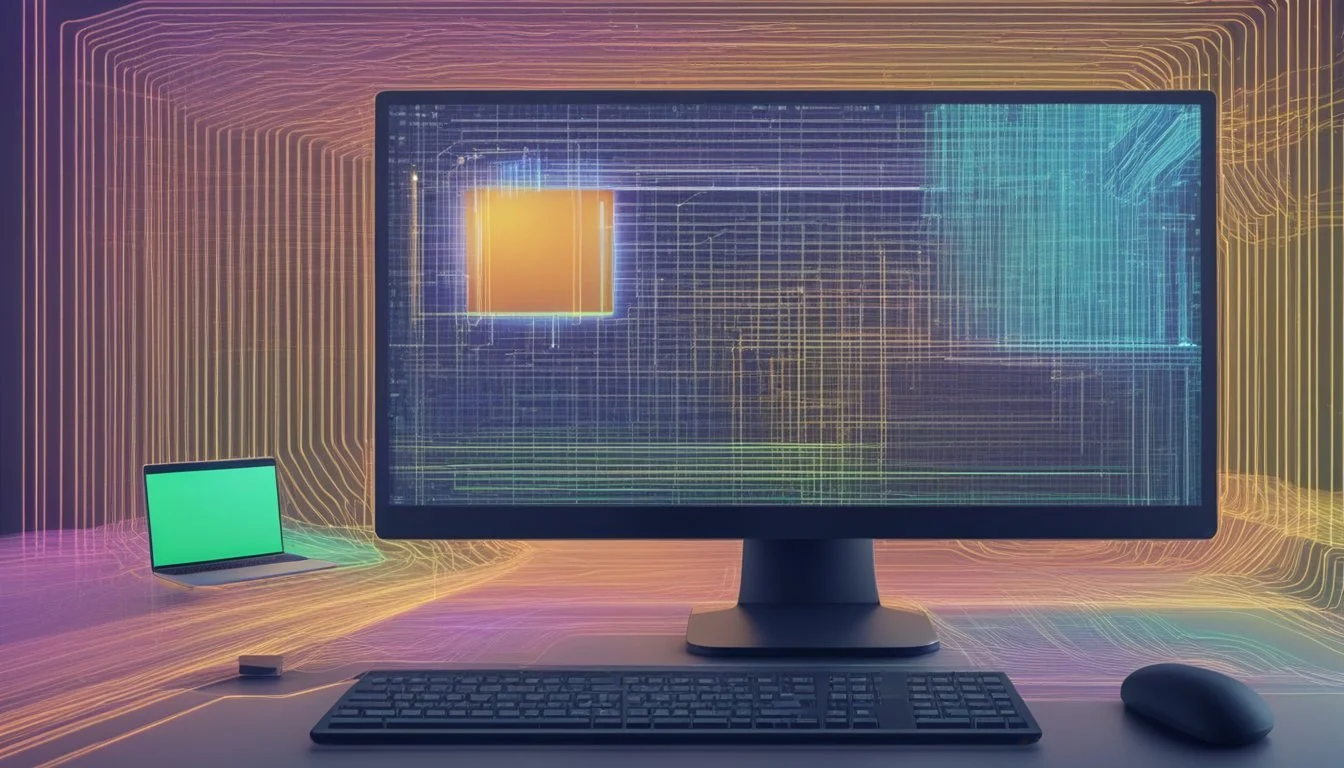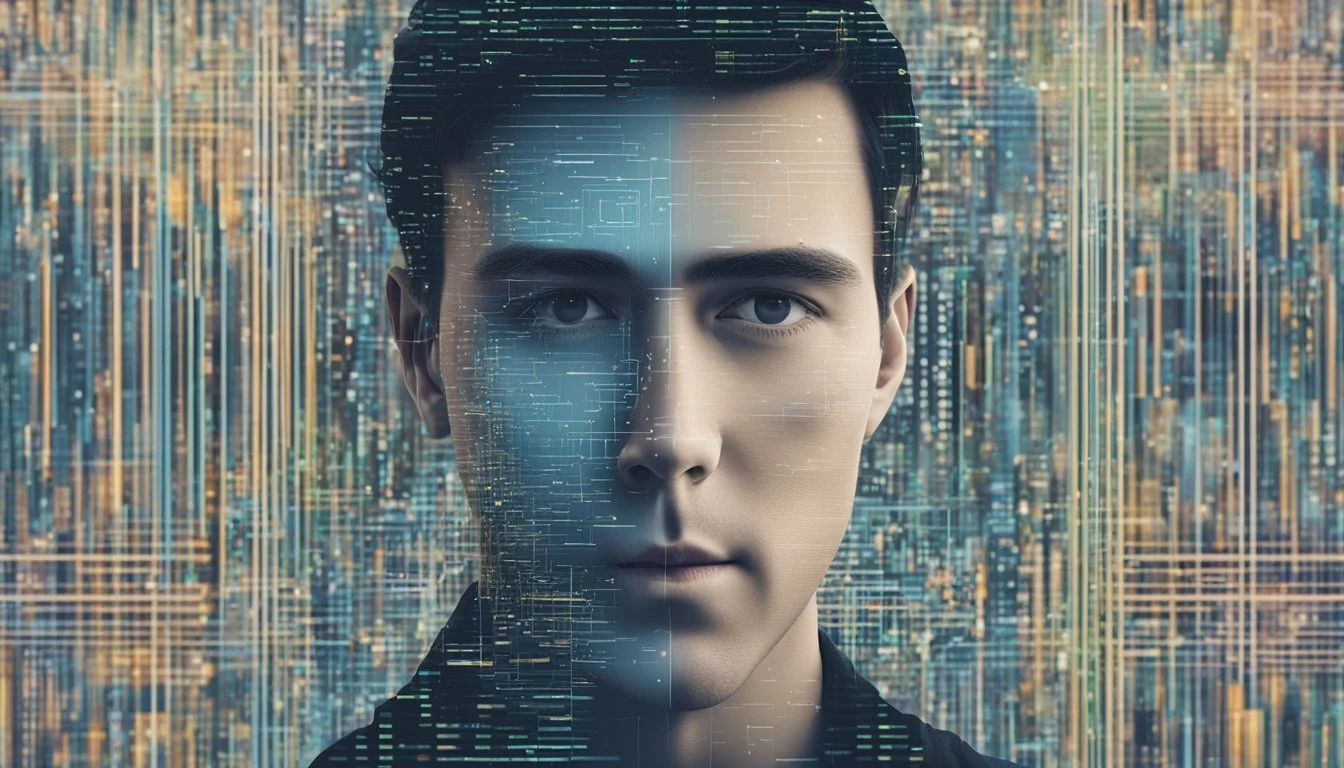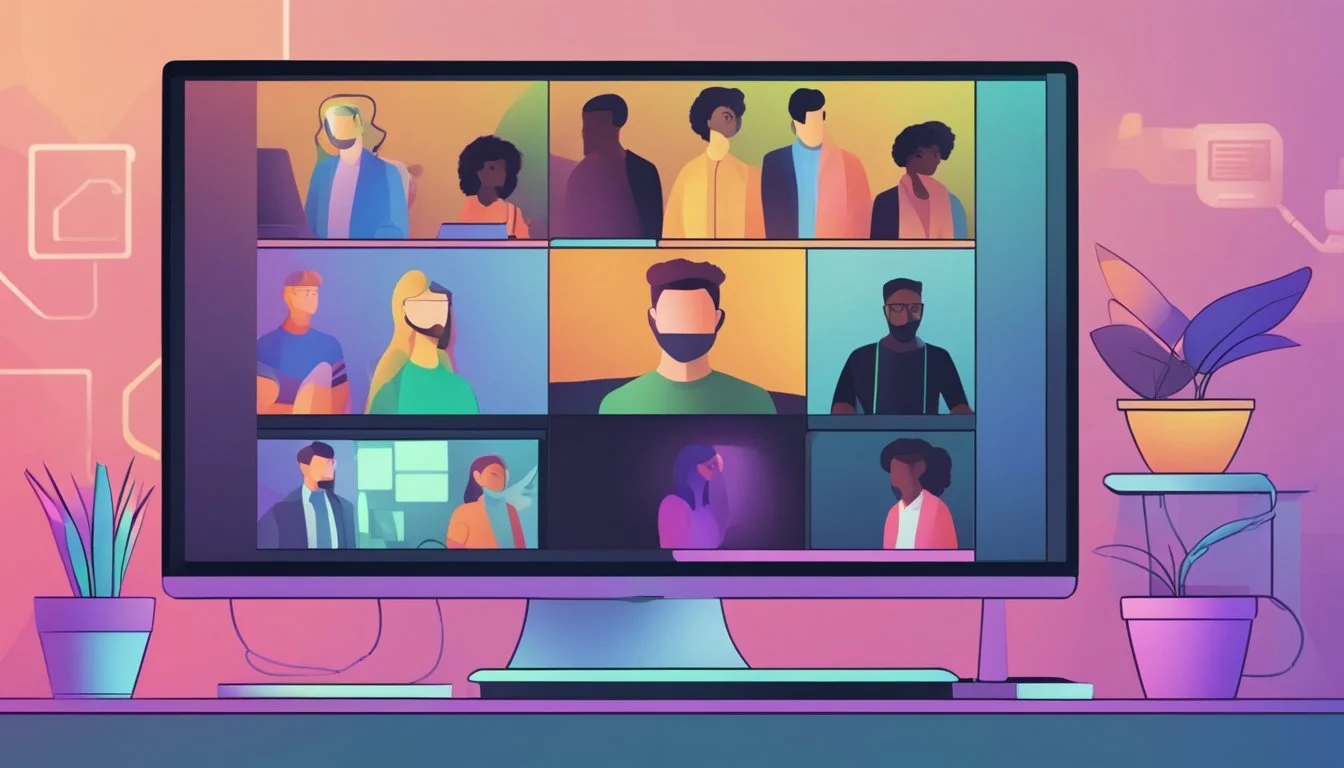6 Eye-Opening Documentaries on Deep Fake Crimes and Digital Deception
Exposing the Dark Side of AI Manipulation
The digital age has ushered in remarkable technological advancements, but it has also given rise to new forms of deception and crime. Deep fakes, sophisticated AI-generated content that can convincingly mimic real people and events, have become a growing concern in recent years. These digital forgeries pose significant challenges to truth, authenticity, and trust in our increasingly online world.
Documentaries examining deep fake crimes and digital deception offer valuable insights into this complex issue, shedding light on the techniques used to create and spread false information. By exploring real-world cases and expert analyses, these films help viewers understand the potential impacts of deep fakes on society, politics, and personal lives. They also highlight the importance of critical thinking and media literacy in navigating today's digital landscape.
1) The Great Hack
The Great Hack is a Netflix documentary that explores the Cambridge Analytica data scandal. Directed by Karim Amer and Jehane Noujaim, the film sheds light on the collection and exploitation of personal data.
The documentary follows key figures involved in the scandal, including Brittany Kaiser, a former Cambridge Analytica employee. It reveals how the company harvested data from millions of Facebook users without their consent.
The Great Hack demonstrates how this data was used to influence political campaigns, including the 2016 U.S. presidential election and the Brexit referendum. It raises important questions about privacy, democracy, and the power of big data.
The film uses visual metaphors to illustrate how digital footprints are created through everyday online activities. It emphasizes the value of personal data as a commodity in the modern world.
By examining the ethical implications of data mining and targeted advertising, The Great Hack serves as a wake-up call for viewers. It encourages critical thinking about online privacy and the potential misuse of personal information.
2) Fake Famous
Fake Famous explores the world of social media influencers and the artificial nature of online fame. Directed by Nick Bilton, this HBO documentary follows three ordinary people as they attempt to become Instagram celebrities.
The film reveals the tactics used to manufacture a false sense of popularity and success on social media platforms. It showcases how followers can be bought, photos can be staged, and entire personas can be fabricated.
Viewers witness the participants engaging in deceptive practices like renting private jets for photoshoots and creating fake sponsorship deals. The documentary highlights the psychological toll of constantly chasing likes and validation online.
Fake Famous offers a critical look at the influencer economy and raises questions about authenticity in the digital age. It demonstrates how easily people can be misled by carefully curated online personas.
The film serves as a cautionary tale about the dark side of social media fame and the pressures to present a perfect image online. It encourages viewers to think critically about the content they consume on social platforms.
3) Coded Bias
"Coded Bias" is a documentary directed by Shalini Kantayya that explores the hidden prejudices in artificial intelligence and facial recognition technology. The film centers on MIT researcher Joy Buolamwini's discovery of racial and gender bias in AI systems.
Buolamwini found that many facial recognition algorithms struggled to accurately identify women and people of color. This revelation sparked her investigation into the widespread implications of biased AI in various aspects of society.
The documentary examines how these flawed technologies are being implemented in law enforcement, hiring processes, and other crucial areas. It raises concerns about the potential for discrimination and violations of civil liberties.
"Coded Bias" features interviews with experts and activists working to expose and address the ethical issues surrounding AI. The film highlights the lack of diversity in the tech industry and its impact on the development of these technologies.
Through its exploration of algorithmic bias, "Coded Bias" sheds light on the urgent need for transparency and regulation in the rapidly advancing field of artificial intelligence. It serves as a wake-up call about the unintended consequences of unchecked technological progress.
4) The Social Dilemma
"The Social Dilemma" is a 2020 documentary that examines the impact of social media on society. Directed by Jeff Orlowski, the film combines interviews with tech industry experts and dramatic reenactments to illustrate its points.
The documentary features former executives and engineers from major tech companies who express concerns about the platforms they helped create. They discuss how social media is designed to be addictive and manipulative.
"The Social Dilemma" explores various issues related to social media use. These include privacy concerns, the spread of misinformation, and the effects on mental health, particularly among younger users.
The film received critical acclaim for its eye-opening portrayal of social media's influence. It sparked conversations about digital ethics and the need for more responsible technology design.
Experts featured in the documentary include Tristan Harris, a former Google design ethicist, and Tim Kendall, a former Facebook executive. Their insights provide a behind-the-scenes look at the tech industry's practices.
"The Social Dilemma" aims to raise awareness about the hidden mechanisms behind popular social media platforms. It encourages viewers to reconsider their relationship with technology and social media.
5) Deepfakes: Can You Trust Your Eyes?
Deepfakes pose a growing challenge to our perception of reality. These hyper-realistic artificial videos and images can convincingly depict people saying or doing things they never actually did.
As deepfake technology advances, distinguishing between genuine and fabricated content becomes increasingly difficult. Even experts struggle to identify sophisticated deepfakes with the naked eye alone.
This erosion of trust in visual media has far-reaching implications. It threatens to undermine evidence in legal proceedings, sway public opinion with false narratives, and damage reputations through manufactured scandals.
Researchers are developing AI-powered detection tools to combat deepfakes. These analyze subtle inconsistencies invisible to humans. However, as detection improves, so do the fakes in a technological arms race.
Raising public awareness about deepfakes is crucial. Media literacy education can help people approach online content more critically. Watermarking and blockchain authentication may also play a role in verifying genuine media.
The rise of deepfakes underscores the need for multiple sources and healthy skepticism in the digital age. While seeing may no longer guarantee believing, vigilance and critical thinking remain our best defenses.
6) In the Age of AI
"In the Age of AI" is a thought-provoking documentary that examines the far-reaching impacts of artificial intelligence on modern society. The film explores how AI is reshaping various aspects of our lives, from employment to privacy concerns.
One of the documentary's key focuses is the growing technological rivalry between the United States and China. It delves into how both nations are vying for dominance in AI development and implementation.
The film also addresses the implications of AI on international relations and global power dynamics. It presents a balanced view of both the potential benefits and risks associated with widespread AI adoption.
Viewers gain insights into how AI technologies are affecting job markets across different industries. The documentary highlights both the creation of new opportunities and the potential displacement of certain roles.
Privacy issues related to AI are another crucial topic covered in the film. It examines the collection and use of personal data by AI systems and the resulting concerns for individual privacy.
"In the Age of AI" offers a comprehensive look at how this transformative technology is shaping our world and what it might mean for our future.
The Rise of Deep Fake Technology
Deep fake technology has rapidly evolved, transforming digital content creation and manipulation. This section explores the algorithms behind deep fakes and traces their historical development.
Understanding Deep Fake Algorithms
Deep fake algorithms utilize deep learning and artificial intelligence to create or manipulate audio and visual content. These systems analyze existing images and videos to generate new, highly realistic synthetic media.
Key components include:
Generative Adversarial Networks (GANs): Two neural networks work in tandem - one generates fake content, while the other attempts to detect the fakes.
Autoencoders: Neural networks that compress and reconstruct data, enabling face swapping and other manipulations.
Facial recognition technology: Identifies and maps facial features for more accurate synthetic recreations.
Deep fake algorithms continue to improve in sophistication and realism, making detection increasingly challenging.
Historical Context and Evolution
The roots of deep fake technology can be traced back to the 1990s, with early facial recognition and image manipulation techniques. However, the term "deep fake" only emerged in 2017.
Key milestones:
2014: Introduction of GANs by Ian Goodfellow
2017: First deep fake videos appear on Reddit
2018: Deep fake creation tools become publicly available
2019: Deepfake detection challenges launched by major tech companies
Initially used for entertainment and harmless face-swapping, deep fakes quickly raised concerns about potential misuse. The technology has since been applied in various fields, from film production to digital impersonation.
Recent developments focus on improving video quality, voice synthesis, and real-time deep fake generation. These advancements have significant implications for media authenticity and digital trust.
Legal Implications and Ethical Concerns
The rise of deepfakes presents significant challenges for legal systems and raises critical ethical questions about privacy, consent, and the nature of truth in the digital age. These technologies have far-reaching implications for individuals, society, and the justice system.
Challenges in Prosecution
Prosecuting deepfake crimes poses unique difficulties for law enforcement and courts. Identifying the creators of malicious deepfakes can be extremely challenging due to the anonymous nature of many online platforms. Proving the falsity of a convincing deepfake often requires sophisticated forensic analysis.
Existing laws may be inadequate to address the nuances of deepfake crimes. Some jurisdictions have begun enacting specific legislation, but many legal frameworks lag behind the technology. Prosecutors face hurdles in establishing intent and demonstrating harm, especially in cases of non-consensual deepfake pornography.
Cross-border jurisdiction issues further complicate prosecution efforts. Deepfake creators may operate from countries with lax cybercrime laws, making international cooperation crucial.
Impact on Privacy Rights
Deepfakes raise profound concerns about personal privacy and data protection. The technology can be used to create highly realistic fake content using an individual's likeness without their knowledge or consent. This poses risks of reputational damage, identity theft, and emotional distress for victims.
The widespread availability of personal images and videos online provides ample source material for malicious actors. Social media platforms and other data collectors face increasing pressure to implement stronger protections for user data that could be exploited for deepfakes.
Questions of consent become murky when deepfakes blur the lines between real and artificial content. Legal definitions of image rights and personal data ownership may need to evolve to address these new challenges. Balancing privacy protections with free speech considerations remains a complex issue for lawmakers and courts.




